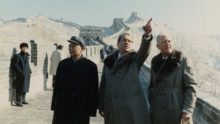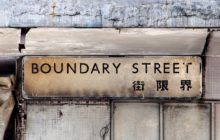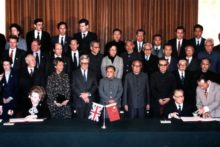1984 is the year that steals the limelight in Hong Kong history—but “the closer you look, the less you see”. To understand the whole picture of how the Sino-British Joint Declaration came to place, one simply cannot neglect the international events happened in the preceding years, if not decades.
When the United Nations was founded after World War II, China, represented by the then ruling Republic of China (“ROC”), was a permanent member state. In no time the Chinese Civil War broke out in 1946. ROC’s Kuomintang eventually retreated to the island of Taiwan; the Chinese Communist Party (“CCP”) now governed the Mainland and established the People’s Republic of China (“PRC”). The problem of China’s representation in the UN then became the elephant in the room in the 50s and a constant dispute in the 60s. For years, the US held onto recognizing the ROC’s legitimacy in the organization to try to offset socialist influence against the Cold War backdrop. In 1969, however, the capitalist superpower’s stance towards the PRC took a steep turn when Richard Nixon came to power. Seeing its bittering relationship with the USSR, Nixon thought he could use China to keep the archenemy in check. He acquiesced the PRC’s status as the sole representative in the UN in 1971, and made a historic visit to the country the following year.

Once in the game, China rolled out its moves almost immediately. In March 1972, merely four months after it had gained its seat, the country’s ambassador Huang Hua wrote a letter to the Chairman of the Special Committee which oversaw decolonization and granting independence around the globe. Huang claimed that since the occupations of Hong Kong and Macau were the results of unequal treaties imposed on China, the questions of Hong Kong and Macau were “entirely within China’s sovereign right” and the UN “has no right to discuss”; he requested that the two de facto colonies be removed from the list of colonial territories.
Such a request was acknowledged by the Special Committee and agreed to be recommended to the General Assembly. The unilateral claim was then slipped into the thousand-plus pages of committee report and passed in the General Assembly later that year. From there onwards, Hong Kong was set to walk on a very different path from any country with colonial history.
In spite of the perpetual cession of Hong Kong Island and Kowloon peninsula, the expiration of the New Territories’ 99-year lease was looming close. London and Beijing were well aware of it, so did enterprises and the common people. While urban development over the past century made the successively-colonized regions inseparable, the governments needed to come up with a solution before instability engulfed the city.

The zeitgeist of post-WWII decolonization led to the UK’s mixed emotions about its empire: on one hand, their economic and military influences were significantly weakened by debts incurred during the war. The humiliating Suez crisis in 1956 further stripped their interest in keeping their territories; on the other hand, the Falklands victory in 1982 reinforced Margaret Thatcher’s confidence in retaining their golden-eggs-laying goose in the Far East. The Prime Minister thus brought forward a Hong Kong lease-back plan—the same she offered to Argentina.
Talks unfolded when Thatcher visited China in September 1982. Initially both parties were adamant. Britain insisted that treaties were “valid in international law”; China, who deemed the colonized Hong Kong a national disgrace, made clear its intention to reclaim sovereignty, even if it meant jeopardizing the city’s prosperity. Just as the Argentines, the Chinese did not buy the lease-back idea. Deng Xiaoping, then PRC’s Vice Premier, threatened to announce unilaterally their decisions to recover Hong Kong in no more than one or two years, should negotiations meet a dead end. What was even worrying was that he indeed had up his sleeves plans to invade Hong Kong, and the last thing the Iron Lady wanted was another Falklands War on the land of a full-fledged, industrialized colony that took one good century to come to shape.
Whitehall began to soften as they realized they hadn’t had much in hand to bargain. They finally gave in to Beijing’s “Special Administrative Region” proposal. All these led to the signing of the Joint Declaration in 1984. The Handover was inevitable.

https://www.scmp.com/news/hong-kong/politics/article/3017318/explainer-what-sino-british-joint-declaration-and-what-does
The matter of Hong Kong remained one of Thatcher’s biggest regrets in her leadership. Meanwhile the local people, feeling their voices never listened to and abandoned by the British, carried another kind of emotion: fear. No one knew what lay ahead when two ideologies which could not be more diametrically opposed clashed. In just half a decade, that dismay would even be heightened to the next level.
#hkhistory #hongkonghistory #hongkongcolonialhistory #postwar #worldwartwo #wwii #coldwar #richardnixon #margaretthatcher #decolonization #sinobritishjointdeclaration #jointdeclaration


